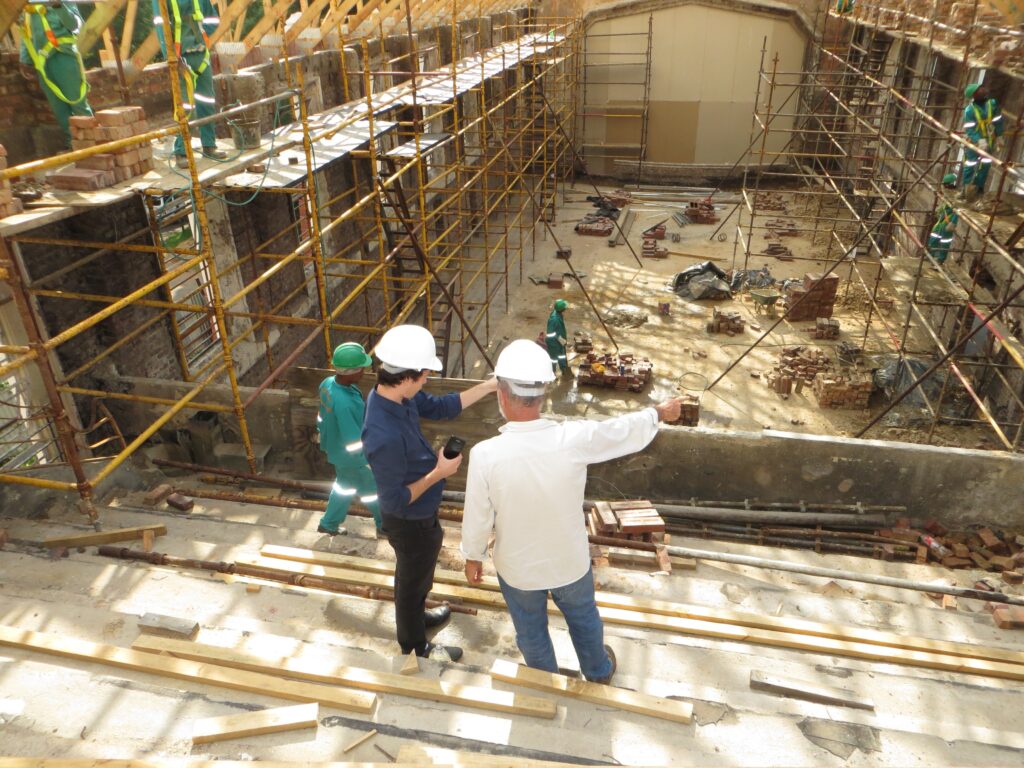In today’s fast-paced world, the construction industry is facing a paradigm shift driven by technology. As projects become more complex and the demand for efficiency rises, the concept of connected construction emerges as a crucial component for achieving optimal project outcomes. This article aims to shed light on smart infrastructure and its role in transforming the construction landscape. By understanding connected construction and its practical applications, you will gain insights into enhancing your projects, fostering innovation, and aligning with Valoon’s mission of streamlining construction processes.
Understanding the Issue
The construction industry has long grappled with challenges such as delays, budget overruns, and communication issues. Traditional methods often lead to inefficiencies that not only impact timelines but also the overall quality of the project. The integration of smart technologies—commonly referred to as connected construction—has the potential to address these issues by fostering greater collaboration and data sharing among stakeholders, including engineers, project managers, subcontractors, and clients.
Connected construction utilizes advanced technologies such as the Internet of Things , Building Information Modeling , and cloud computing. These technologies enable real-time data exchange and enhance visibility across all stages of a project. As a result, teams can react quickly to issues as they arise, ultimately reducing risk and improving the quality of the finished product. Understanding and implementing connected construction doesn’t just enhance your project workflow; it also ensures that you stay competitive in an increasingly technology-driven industry.
Practical Solutions or Insights
To successfully implement connected construction, consider the following actionable strategies:
1. Embrace IoT Devices: Start integrating IoT devices into your construction sites. These devices can monitor environmental conditions, track equipment usage, and provide real-time feedback on various aspects of the project. By collecting and analyzing this data, you can make informed decisions that lead to more efficient operations.
2. Utilize Building Information Modeling : Adopt BIM technology to create 3D models that visualize the project from inception to completion. BIM allows for better collaboration among stakeholders, as everyone works from the same model, ensuring that any changes or updates are immediately accessible to all parties involved. This minimizes the likelihood of errors that can arise from miscommunication or outdated information.
3. Leverage Cloud Collaboration Tools: Implement cloud-based project management solutions to facilitate communication among team members, whether they are on-site or in the office. Tools that offer file sharing, task management, and real-time updates empower your team to work collaboratively and enhance accountability. This level of transparency helps all stakeholders stay aligned on project objectives and timelines.
4. Invest in Employee Training: Ensure your team is well-versed in new technologies and tools. Providing training not only improves employee confidence in using these innovative solutions but also maximizes their potential benefits. Regular workshops and hands-on training sessions can help foster a culture of adaptability and continuous improvement within your organization.
5. Monitor Progress with Data Analytics: Use data analytics to track project outcomes and performance metrics. By establishing key performance indicators , you can evaluate the effectiveness of your connected construction strategies. This data-driven approach allows you to refine processes, mitigate risks, and enhance efficiency in future projects.
By incorporating these practical insights, you can significantly improve project outcomes while promoting a culture of innovation and efficiency within your organization.
Conclusion or Takeaway
Connected construction represents a transformative shift in the construction industry that offers a multitude of benefits. By embracing technologies like IoT, BIM, and cloud collaboration tools, you not only address existing challenges but also position yourself as an industry leader committed to innovation and efficiency.
We encourage you to explore these solutions further and consider how Valoon can enhance your project outcomes. Valoon offers an intuitively designed comprehensive solution for project communication, control, and documentation, ensuring that all stakeholders remain connected and informed throughout the construction process.
Software that works! Streamline your project management with Valoon and experience the benefits of connected construction—improved efficiency, reduced delays, and superior quality. Take the next step towards smarter building today!








